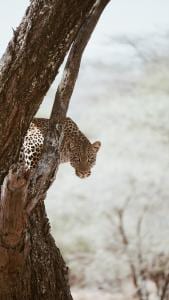I’m over at the Christian Research Institute today. Also, check out the podcast I did with Melanie.
**********************************************
“And they picked up stones to stone him,” recounts John in his gospel when Jesus, knowing the full consequence of His claim, declared before all the assembled religious throng in the temple, “Truly, truly, I say to you, before Abraham was, I Am.”1 Those ancient, earth shattering words resounded in the ears of His enemies — biblically literate, law-abiding men who understood that He was claiming to be God. Ego eimi, I am, could simply be self-referential — I am hungry, I am tired — but paired with the claim to be an eternal person who was before Abraham, Jesus’ opponents rightly recognized His application of the divine name to Himself. This name was held by them to be so sacred that no ordinary creature should give it voice, instead saying “The Lord” whenever he came to the Tetragrammaton on the page. No wonder the leaders of Israel were incensed and angry to hear the divine name falling unabashedly from the mouth of a mortal man.2
Imagine my surprise, then, to come to the final passage in Glennon Doyle’s latest memoire and read:
What are you, Glennon? Are you happy? Are you sad? Are you Christian? Are you a heretic? Are you a believer? Are you a doubter? Are you young? Are you old? Are you good? Are you bad? Are you dark? Are you light? Are you right? Are you wrong? Are you deep? Are you shallow? Are you brave? Are you weak? Are you shattered? Are you whole? Are you wise? Are you foolish? Are you sick? Are you healed? Are you lost? Are you found? Are you gay? Are you straight? Are you crazy? Are you brilliant? Are you caged? Are you wild? Are you human? Are you alive? Are you sure? I am. I am. I am.3
Here, by themselves, these words may seem no more than a useful self-examination at the conclusion of an exhausting day or some unexpected trial, but if you labor through Untamed, you will see that they are the culmination of a compelling yet idolatrous claim. Doyle says it in a swift rushing river of prose:
When I talk like this, my wife raises her eyebrow and asks, “Aren’t you just talking to yourself down there?” Maybe. If what I’ve found in the deep is just my self — if what I’ve learned is not how to commune with God but how to commune with myself — if who I have learned to trust is not God but myself — and if, for the rest of my life, no matter how lost I get, I know exactly where and how to find myself again — well, then.4
Well then is exactly right. But first, who is Doyle and why should Christians be on a wary lookout for her name and her work?
Who Is Glennon Doyle?
Doyle stepped into the spotlight in 2012, like so many, with a single post on her blog, Momastery, entitled “Don’t Carpe Diem.” In a single witty, incisive missive she wrote what every mother thinks silently to herself as she muscles a full cart of children through Target only to be interrupted by well-meaning grandmotherly types who declare, among other things, “I hope you’re enjoying every moment.” Rather than answering back when it happened one too many times, Doyle distilled her thoughts into a sane, practical vision for parents of little children. You can’t seize the day, she says, that way lies madness.5
Therein arises Doyle’s undeniable appeal. She articulates what is on the tip of everyone’s tongue. She catches the wave of the moment and rides it to its peak. In Carry On, Warrior (Scribner, 2013), she encouraged women to do the hard thing — to go to therapy, to go to rehab, to show up for themselves and for their children. A teenage victim of bulimia and alcohol and drug addiction, she knew of what she was talking. Women anxious to more fully live their own lives snatched her book off the shelf.
Tragically, as Carry On, Warrior hit the market, Doyle’s husband confessed to serial adultery over the whole course of their marriage. Desperate to rescue her own life, and, she admits in Untamed, her own plot line, she winched her disintegrating marriage back together, leading to her second bestseller, Love Warrior (Flatiron Books, 2016), the story of marital reconciliation no matter the cost, of dealing head on with the heartbreak of betrayal. But in the very first week of the launch of Love Warrior, Doyle saw Abby Wambach across a crowded room and fell in love. Doyle went home, broke up with her husband, and a year later she and Wambach were married. Untamed is that story — how she finally let go of all that “society” taught her to value, how she “burnt it all down” and found her true self.
Many Christians have never heard of Doyle, preferring to focus their Christian discipleship close within the spiritual confines of the church rather than the internet. But in a time when Christian identity, like all identity, is increasingly imagined to be up to the individual to craft and shape according to preference and desire, Doyle’s writing is ringing true for those even inside the church. A brief slog around the blogosphere and social media reveals innumerable women of every creed applauding Doyle’s honesty and courage. Indeed, the modern word “Influencer” is not even the half of it.
The Cheetah and the Untaming
Doyle undertakes an at once aesthetic, but at root, didactic task in Untamed. She will teach women to be wild, to discover themselves and trust what they find over any other authority or cultural institution. The final product is a how-to in discovering the divine within, in becoming god. She achieves this end by cutting bits out of the Bible, mashing them together with her own thoughts and experience, and serving up the uncanny antithesis of each untamed morsel. Whether or not Doyle undertook consciously to subvert and reinterpret the Scriptures as perfectly as she does, I do not know. The answer to that question would be fascinating to discover but is not essential for understanding her task — to uphold the concept of faith, to recast it so that it becomes self-knowledge, and finally to elevate that knowledge into the place of god.
She begins with the aggressive image of a cheetah, an animal she observed on a zoo trip with her children. They watched a cheetah, Tabitha, chase a dirty pink bunny tied to a string, which was tied to a jeep. The bunny had already been caught by Tabitha’s “best friend,” a cheerful lab named Minnie. Minnie chased the bunny, then Tabitha chased the bunny, then Doyle realized that she herself had been chasing not just one pink bunny, but all the bunnies offered to her by organized society and religion. “I am a cheetah,” she discovered, leading to further discoveries about what it means to “find the Knowing,” and how to “remember her wild.” Doyle wrote the book hoping the reader would feel the breathless energy of a cheetah, of being a beautiful, powerful creature who has the will and ability to tear asunder all the constricting, “taming” mores that keep women in their place…read the rest here.













